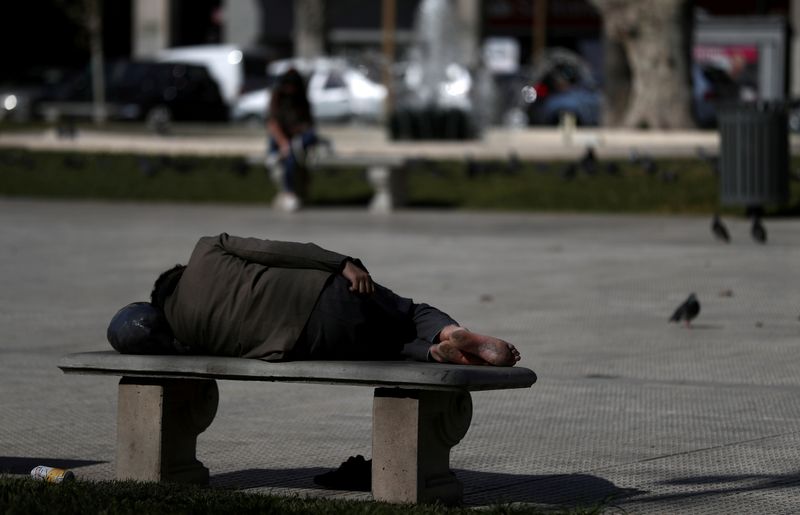BUENOS AIRES (Reuters) – Nearly half of Argentina’s population was living in poverty in the second quarter, a sharp increase from last year, as the country’s longstanding economic crisis deepened due to the coronavirus pandemic, researchers estimated on Wednesday.
The Catholic University of Argentina (UCA) estimated the poverty rate spiked to between 46% and 47% by the end of June following months of strict lockdowns to battle the spread of the virus.
Data by the government’s official statistics agency Indec, which reports poverty numbers every six months, showed on Wednesday that the poverty rate rose to 40.9% in the first six months of 2020, a significant uptick from 35.5% in the second half of last year.
“There is greater general poverty. We are all a little poorer – we already were last year – and now with greater inequality,” said UCA researcher Agustín Salvia.
He blamed the loss during the pandemic of 3.5 million jobs, mostly informal, for the rise, which was up from the 40.8% poverty rate recorded by UCA at the end of last year. The poverty line is drawn at 14,718 pesos ($193) per month.
The numbers reflect a daily reality for Argentines like Guillermo Garay, who works as a street vendor during sporting events and saw his livelihood virtually disappear under the pandemic shutdowns.
“I survived because of family that supported me, because I had no possibility of doing anything,” Garay said while selling Argentine flags at a protest in the capital, Buenos Aires.
UNEMPLOYMENT
Argentina’s economy contracted a record 19.1% in the second quarter versus a year earlier as the pandemic crippled production and demand, and is on track for a 12% economic plunge in 2020, analysts say.
Small companies that produce for the domestic market were hit particularly hard as activity came to a halt and businesses closed across the county for months beginning in March, driving unemployment up to 13.1% in the second quarter.
Argentina recently struck a deal with its creditors to restructure about $65 billion in foreign debt and has a bumpy fiscal road ahead, sapping the spending power for social programs that could have helped alleviate the effect of the pandemic on the poor.
“To get out of this poverty crisis requires a lot of imagination on the part of those in charge. The traditional programs of a few public works and a slight improvement in wages will not be enough,” said Andrés Asiain, a local economist.
Salvia said it seemed unlikely that poverty levels would improve in the immediate future, and predicted about 45% of Argentines would still be in poverty at the end of the year.
“To get back to the 35% (poverty rate) we had before the crisis, which was already a scandal, I do not see it possible this year or next year,” Salvia said.
(Reporting by Nicolas Misculin and Juan Bustamante; writing by Cassandra Garrison; Editing by Sonya Hepinstall and Paul Simao)






















